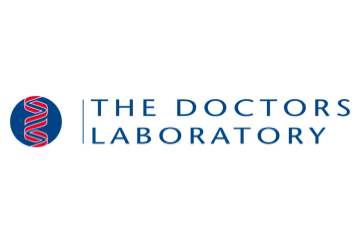

Cart
Your cart is empty

IVF Matters is based on Harley Street, London, one of the UK’s leading medical districts. We also provide online consultations, and partner with local labs and ultrasound clinics nationwide, so you can access fertility services close to home.
Intrauterine insemination (IUI) is a fertility treatment where prepared sperm is placed directly into the womb during ovulation. It’s less invasive than IVF and may be suitable for single women, same-sex couples, or those with unexplained infertility. At IVF Matters, IUI treatment is consultant-led and tailored to your needs.
Yes. Miscarriage can be emotionally and physically challenging. IVF Matters offers specialist miscarriage investigations to identify potential causes and provides treatment options, including recurrent miscarriage testing and genetic counselling. Our team also provides emotional support throughout your journey.
We offer fertility scans, pelvic ultrasounds, early pregnancy scans, and follicle tracking. These scans are available in London and across the UK through our partner clinics. Ultrasounds help assess ovarian reserve, monitor treatment progress, and provide reassurance during early pregnancy.
An advisory call is a 20-minute consultation with a customer care expert to discuss your concerns, medical history, or next steps. It’s ideal if you’re unsure where to begin your fertility journey or need quick advice before committing to a full consultation. These calls are available online, making them accessible anywhere in the UK.
Yes. IVF Matters provides a full range of male fertility tests, including semen analysis, DNA fragmentation, scrotal scans and hormonal testing. We also offer treatment options and referrals to urologists if required. Male fertility contributes to nearly 40% of infertility cases, and early testing is important.
Infertility can result from factors such as age, ovulation problems, blocked fallopian tubes, sperm quality, hormonal imbalance, or unexplained reasons. IVF Matters offers diagnostic tests for both men and women to identify the cause and recommend the most suitable treatment.
Booking is quick and easy. You can schedule an online consultation, face-to-face appointment at Harley Street, or a lab/scan visit near you directly via our website. We also offer evening and weekend slots for flexibility.
We provide comprehensive female fertility tests, including AMH blood tests, hormone profiling, and pelvic scans. These tests help assess ovarian reserve, cycle health, and identify potential issues such as PCOS or endometriosis.
Both are assisted reproductive treatments. With IVF, eggs and sperm are combined in a lab dish for natural fertilisation. With ICSI (Intracytoplasmic Sperm Injection), a single sperm is injected directly into an egg. ICSI is often recommended in cases of male infertility or when previous IVF attempts were unsuccessful.
Yes. Preconception counselling helps individuals and couples prepare for pregnancy by addressing medical, genetic, and lifestyle factors. Our consultants can recommend tests, supplements, and health checks to optimise fertility before starting treatment.
In the UK, couples are generally advised to seek help if they haven’t conceived after 12 months of unprotected sex (or 6 months if the woman is over 35). IVF Matters offers quick access to fertility specialists without long NHS waiting times.
Yes. We welcome international patients and can provide remote consultations followed by treatment at our London clinic. We also support patients who begin treatment overseas but need ongoing care in the UK.
Most fertility treatments involve minimal discomfort. Procedures such as blood tests, ultrasounds, and egg collection are well-tolerated, and pain relief is available when needed. Our consultants ensure you feel supported throughout.
Fertility treatment can be overwhelming. IVF Matters provides access to counselling, emotional support resources, and compassionate care, alongside medical treatment, to help you feel reassured throughout your journey.
In vitro fertilisation (IVF) is a fertility treatment where eggs are fertilised by sperm in a lab and the resulting embryos are transferred to the womb. Success depends on factors like maternal age, ovarian reserve, and embryo quality. At IVF Matters, our consultant-led approach helps optimise your chances of success.
In the UK, private IVF treatment typically costs between £5,000 and £13,000 per cycle, depending on the clinic and complexity. At IVF Matters, we offer short-term interest-free and long-term payment plan options, along with "Buy Now Pay Later" soft-credit arrangements to help manage costs
https://www.ivfmatters.co.uk/pages/fertility-finance?_pos=1&_psq=fertility+fi&_ss=e&_v=1.0.
IVF Matters highlights its live birth rate for all ages in 2021, which outperforms national averages through personalised care and expert guidance
https://www.ivfmatters.co.uk/pages/ivf-success-rates?_pos=1&_psq=suc&_ss=e&_v=1.0.
We provide a wide range of services including fertility assessments, egg freezing, IVF/ICSI, IUI, PGT (Preimplantation Genetic Testing), FET (Frozen Embryo Transfer), ovulation induction, and both male and female fertility testing
https://www.ivfmatters.co.uk/products/female-fertility-fitness?_pos=1&_psq=female&_ss=e&_v=1.0.
Consultations are available in person at our Harley Street clinic as well as online
https://www.ivfmatters.co.uk/products/fertility-consultation-1?_pos=1&_psq=fertili&_ss=e&_v=1.0
Egg freezing is on the rise—recorded cycles in the UK hit nearly 7,000 in 2023, more than twice the number in 2019. There was a 67% increase among women aged 30–34 and 53% among those aged 35–37 from 2022 to 2023
https://www.ivfmatters.co.uk/pages/egg-freezing?_pos=1&_psq=egg+free&_ss=e&_v=1.0
IVF Matters offers expert-guided egg freezing consultations to help women freeze their fertility on their own terms.
Eligibility varies across the UK (“postcode lottery”). NHS-funded IVF has dropped from 35% in 2019 to 27% in 2023, with wide variation regionally—such as 54% in Scotland versus just 18–20% in parts of England. Criteria may include age limits, BMI thresholds, co-habitation requirements (in Scotland), and unexplained infertility duration. Fertility Network UK and HFEA offer detailed guidance.
PGT (Preimplantation Genetic Testing) assesses embryos for genetic abnormalities before transfer, helping improve success rates and reduce miscarriage risks. IVF Matters offers PGT as part of comprehensive fertility treatment services
https://www.ivfmatters.co.uk/pages/genetic-testing-of-embryos-pgt?_pos=1&_psq=PG&_ss=e&_v=1.0.
The Human Fertilisation and Embryology Authority (HFEA) is the statutory regulator overseeing all UK IVF clinics. They license clinics, approve treatments like mitochondrial donation (3-parent IVF), and monitor safety standards.
Yes. Factors like diet, exercise, stress management, sleep, and avoiding smoking or alcohol can all improve fertility. Maintaining a healthy BMI is especially important for both natural conception and assisted reproduction treatments like IVF or IUI. At IVF Matters, we offer preconception counselling to help optimise your health before treatment.
Yes. Female fertility declines with age, especially after 35, due to reduced egg quality and quantity. IVF success rates are highest in women under 35, but treatment can still be successful in older women with the right support. Male fertility also declines gradually, mainly due to reduced sperm quality.
Stress doesn’t directly cause infertility, but it can affect hormone balance, ovulation, and treatment outcomes. Managing stress with counselling, relaxation techniques, and support groups can help improve wellbeing during treatment.
We offer AMH tests, hormone profiling, pelvic ultrasound scans, ovarian reserve testing, and genetic screening. These tests help identify potential conditions such as PCOS, endometriosis, or diminished ovarian reserve.
A semen analysis is the first step, assessing sperm count, motility, and shape. Advanced tests such as sperm DNA fragmentation, scrotal scan and hormonal profiles are also available at IVF Matters.
AMH (Anti-Müllerian Hormone) testing measures ovarian reserve. It is a key test in planning fertility treatments like IVF or egg freezing.
Private IVF in the UK costs between £8,000 and £13,000 per cycle, depending on the clinic and complexity. IVF Matters offers transparent pricing with a variety of packages.
NHS funding depends on where you live. Some regions fund up to 3 cycles, while others offer none. IVF Matters helps patients who are not eligible or face long NHS waiting times.
Yes. IVF Matters provides interest-free and long-term finance options, including "Buy Now, Pay Later" arrangements, making treatment more affordable.
This varies by individual, but on average, 2–3 cycles may be required. Your consultant will provide personalised advice based on your age and medical history.
Yes. IVF Matters accepts results from other private clinics or the NHS, saving time and reducing duplicate testing.
Success rates are lower in women over 40 due to reduced egg quality. IVF Matters offers PGT, and advanced treatment options to improve chances.
IVF is a safe, regulated procedure in the UK. Risks such as ovarian hyperstimulation syndrome (OHSS) or multiple pregnancy are carefully monitored and minimised.
Side effects may include bloating, mood changes, or mild discomfort. Serious side effects are rare and your consultant will monitor you closely throughout.
Key factors include age, ovarian reserve, sperm quality, embryo quality, and lifestyle factors. Personalised treatment at IVF Matters helps maximise success.
Natural conception refers to becoming pregnant through sexual intercourse, without medical interventions like IVF or IUI. It relies on healthy sperm, ovulation, fallopian tube function, and a receptive uterine environment. At IVF Matters, we support couples planning natural conception with fertility assessments, lifestyle guidance, and preconception care.
Most couples (over 80% where the woman is under 40) will conceive naturally within 12 months if they have regular, unprotected sex every 2 days. If you are over 35, or if there are known fertility concerns, seeking guidance sooner may be beneficial.
Ideally it is best to have a screening test done in a pre-conception period. If you have been trying for 12 months without success (or 6 months if the woman is over 35), it’s wise to get medical advice. Also consider seeking help sooner if you have known reproductive conditions (e.g. PCOS, endometriosis, blocked tubes), or if you or your partner have a history of fertility issues.
Some of the key steps include:
If you are having regular menstrual cycle (between 25-35 days) this indicates that you are ovulating hence you do not need to use ovulation predicator kits or fertility tracking apps.
Yes. While nothing guarantees pregnancy, certain adjustments are proven to support fertility:
Some issues that may hinder natural conception include:
If conception doesn’t occur within expected timeframes, fertility assessment can help pinpoint these.
Yes — fertility assessments are not only for assisted reproduction. Evaluating hormone levels, ovarian reserve, semen quality, and uterine anatomy can help identify issues that may obstruct natural conception. If issues are found, targeted treatments or lifestyle adjustments can improve your chances.
Absolutely. Female fertility gradually declines with age, becoming more pronounced after 35. Egg quality and quantity diminish, increasing miscarriage risk.Men’s fertility also shows changes over time, especially in sperm DNA quality, though less abruptly.
Having sex every 2 days across the cycle is generally optimal. Too frequent may slightly reduce sperm count, but too infrequent may miss the fertile window. The focus should be consistency rather than overthinking frequency.
Certainly! You do not need a referral from your NHS GP or a consultant to use our services.
Please contact us by completing our get in touch form providing information of the service you require, where you are based and how soon you need the results.
Yes, of course you can. You will receive your results via email or our secure online portal. You can then share your results with your doctor.
Please upload your results to the patient portal.
Of course! We will only share your information with providers of services that you have requested. We may contact you from time to time but you can unsubscribe at anytime if you are no more interested in our services. Please read our privacy policy for further information.
An admin fee of £29 will be charged if you wish to cancel the order after it is processed. We operate a 7-day service so this will also apply to orders placed on weekends too. If you've used Shopify, PayPal and Stripe you will not be refunded the card processing fee for the use of their service. This is typically up to 3% of the transaction fee. Likewise if you use Humm or Split-it your refund will depend on their terms and conditions. Their fees are typically up to 5% of the transaction fee and in addition to the fees charged by Shopify, PayPal and Stripe. Kindly read their T&Cs before using these payment gateways. Kindly read our Terms and Conditions page for more detailed information on our refund policy.
Please inform us immediately if you are not able to attend the appointment offered or want to cancel your appointment. We have a 48-hour cancellation policy. An admin fee of £29 will be charged if you wish to cancel the order after it is processed. We operate a 7-day service so this will also apply to orders placed on weekends too. If you've used Shopify, PayPal and Stripe you will not be refunded the card processing fee for the use of their service. This is typically up to 3% of the transaction fee. Likewise if you use Humm or Split-it your refund will depend on their terms and conditions. Their fees are typically up to 5% of the transaction fee and in addition to the fees charged by Shopify, PayPal and Stripe. Kindly read their T&Cs before using these payment gateways. Kindly read our Terms and Conditions page for more detailed information on our refund policy.
You will be charged an admin fee of £29 to reorder the test kit.
Please refer to our Terms and Conditions page for more detailed information on our refund policy.
Payments in instalments. Soft credit checks! Quick applications! Select at checkout.

Monthly payments over 12 months

Monthly credit card payments over 6 months

Monthly payments up to 7 years
Working with



